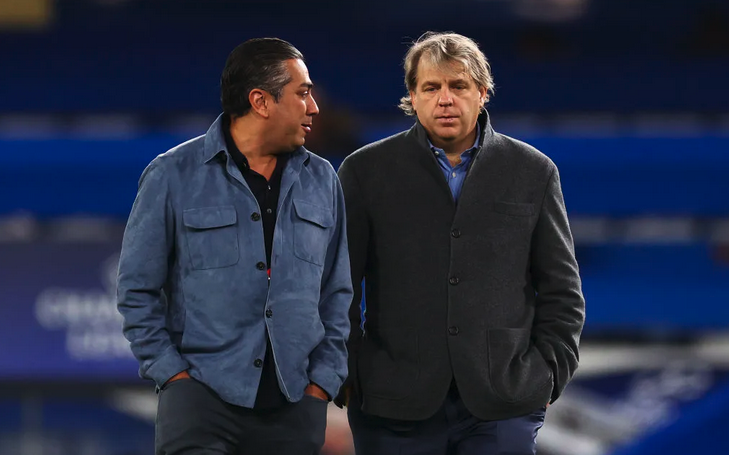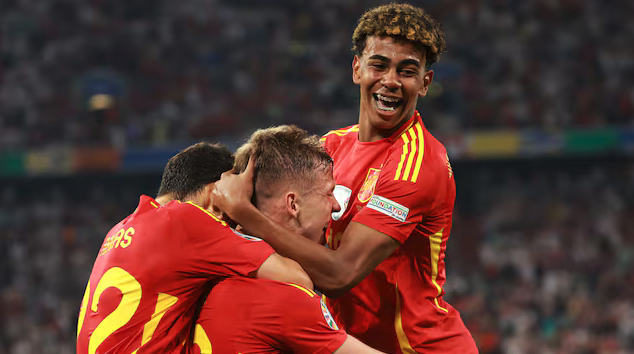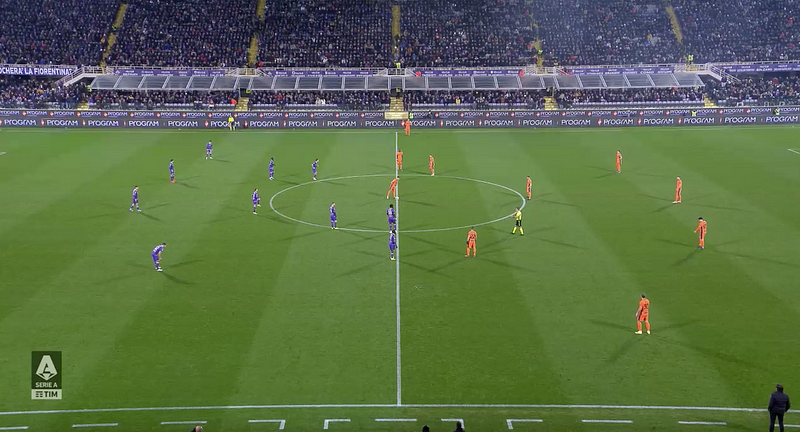- January 8, 2022
- No Comment
Coming Soon!

What does football have to do with the ever-changing political climate of Europe? What do teams playing football have that national entities can benefit from? And how does national interest, trickle down to the sidelines of a football match?
Football transcends boundaries and unites people who watch the sport, irrespective of their nationality and the sport fosters a sense of camaraderie and an unspoken, yet prevalent bond of togetherness.
Sports diplomacy is perhaps the perfect ploy for companies and nations intending to change their public impression while aiming to attract positive publicity and to execute their agenda. Being attached to a sport as globally watched and loved as football, presents a unique opportunity to companies and nations as a form of soft diplomacy to strengthen their image and public impression whilst also adhering to their political motives.
‘Sports Diplomacy’, is defined as: The use of sport as a means to influence diplomatic, social, and political relations.
Gazprom has been affiliated with football since the early 2000s. It’s commonplace now to see a Gazprom sponsored team or a Gazprom logo on the sideline banners during a football match, especially in the UEFA Champions League. It’s also commonplace to find Gazprom logos in press conference banners and other such places. Whether you’re in England, Italy, Spain or Germany, in Europe’s top leagues and the lower leagues, viewers would almost certainly see a Gazprom advert on the sidelines of a football game.
Why does Gazprom affiliate itself with European club football and what does it intend to accomplish by this affiliation?
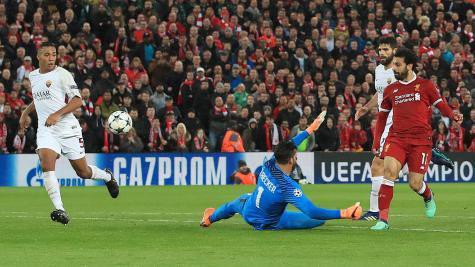
Gazprom is a Russian government-owned Natural Gas provider and represents a different proposition to private companies that sponsor football teams with motives to sell their products or services.
Russia’s pertinent interest in Gazprom accounts for national sales of Natural Gas, of which the country has the world’s highest reserves.
Since 2005, the Russian government owns a majority stake i.e. 50.23% in Gazprom. Which in turn dovetails that company profits are under the control of the Russian Government and account for the nation’s GDP.
In 1997, Gazprom mooted a Natural Gas pipeline project called the ‘Nord Stream’, a pipeline that stretched from Russia to Germany through the Baltic Sea. The project began to receive negative publicity and widespread criticism across borders in Europe at the time, but in later years the public scrutiny found itself significantly reduced because of the equivocal yet exceedingly clever tactic of using sports as a form of diplomacy to change the image of the company and in the process, pursue national interest.
Since 2005, Gazprom has gone about its business by strategically choosing and sponsoring certain football teams based on their geographical location, that mirrored the company’s projects and plans.
In 2006, it began the deployment of this effective tactic by sponsoring FC Schalke 04, a German club which is located in Gelsenkirchen, Northern Germany, in the Ruhr valley, where most of Germany’s energy sector is based. It’s also close to Rehden, a town which is a hub for pipelines throughout Europe and home to Europe’s largest natural gas storage facility.
At the time, the German club’s finances were worryingly low and the club was struggling to operate at the same level as other clubs in the country and barely able stay afloat. However, fresh impetus and funds were brought in through Gazprom’s sponsorship agreement.
After Gazprom successfully sponsored Schalke, the German press hailed the company for rescuing the debt-ridden football club while stories and the company’s public image began to slowly, yet assuredly change.
Schalke wasn’t Gazprom’s first team sponsorship, in the previous year in 2005, the company bought a controlling stake in a team on the other end of the Nord Stream pipeline, namely Zenit St. Petersburg in Russia, an effort which saw Zenit instantly win the Russian Premier League the following year with fresh funds available to sign top talent from across the globe.
Schalke also won the DFB-Pokal, the German equivalent to the FA Cup in England, a domestic cup competition in 2011, which was at the time a massive achievement.
By 2011, Nord Stream was completed and all foreign dignitaries involved including Gerhard Schroder, Angela Merkel and other top European officials gathered to celebrate as Russian Natural Gas began being pumped into Germany; A symbolic victory for Gazprom and it’s representatives.
In 2010 there was yet another strategic club sponsorship signed, this time in Serbia with the team Red Star Belgrade. Serbia was perfect for the other natural gas pipeline to Southern and Eastern Europe called the South Stream, again bypassing Ukraine, a country which Russia has a fractious relationship with.
However, the South Stream project closed in 2014. But another fresh Nord Stream project called the Nord Stream 2, a second pipeline doubling the amount of gas pumped from Russia into Germany began in 2017, with a completion date of 2020.
Football matches in Germany currently display Nord Stream 2 banners on their sidelines and in the stadiums.
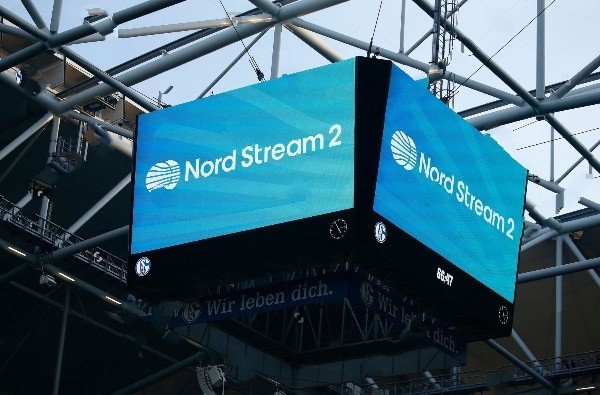
In this way, Gazprom continues to sponsor other football teams across Europe and the UK, of which Roman Abramovich owned Chelsea FC based in London, were obvious customers given the Russian billionaire’s ownership of the club and interests in Russia.
Gazprom also signed a sponsorship agreement with the UEFA Champions League, Europe’s Premier Football Club championship, from 2012–2016 and asserted their worldwide influence with the sponsorship of the holy grail of football, the FIFA World Cup which was held in Russia in 2018.
Gazprom invested heavily in sponsoring football teams and tournaments to alter their public image, receive positive publicity and execute their projects behind the veil of an ordinary sports sponsorship.
Countries and the companies owned by them are following Gazprom’s example and outlay of sports diplomacy to change the image of their country’s brands worldwide.
Countries and entities which have followed suit are UAE’s Emirates group and Abu-Dhabi owned Etihad, whose interests lie beyond airlines to oil and energy as well.
Etihad owns a majority stake in Manchester City FC in Manchester, England while Emirates sponsors Arsenal FC in London, England. Arsenal FC have even given the UAE group the rights to name their home stadium ‘The Emirates’ while Man City’s home stadium is now called ‘The Etihad’.
With fresh money being pumped into football clubs by which they can sign the best players and in turn change their fortunes on the pitch, while also being heralded and celebrated by millions of doting fans, companies such as Gazprom, Etihad and Emirates are changing the public image of their brands slow yet assuredly through the same ploy of sports diplomacy.
The nature of the sport and it’s global viewership and adoration account for the instant change of image and fortunes for the club, the company and nation holding the interest. Which begs the question, if sports diplomacy is the ideal tactic for a national entity to leverage the global love of a sport to execute their political and diplomatic agenda?
In this short Vox video, Gazprom and their activities have been explained for viewers across the globe.



